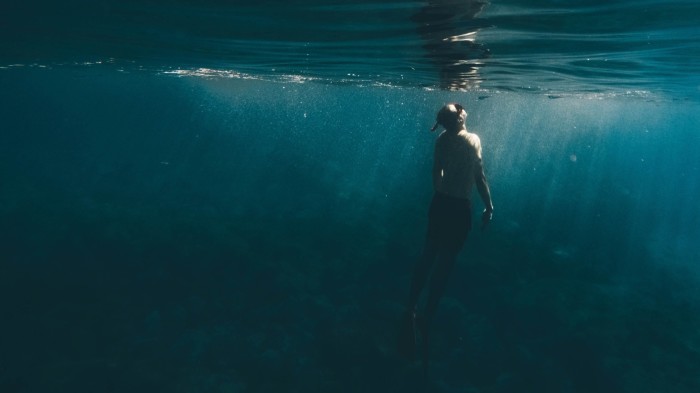
Unlock the Editor’s Digest for free
Roula Khalaf, Editor of the FT, selects her favourite stories in this weekly newsletter.
There is an irony that, while sales in the dive watch category show a rise in popularity, the timepieces seldom take a dip in the shallow end of the gym pool — let alone get anywhere near the 50-fathom mark.
But this buoyant appetite for “desk divers” — watches named after the professionals who wear them to work but never for watery pursuits — is a reason why models in the category are morphing into something more fanciful.
“Dive watches have been limited to a certain aesthetic for so many years, because they were designed for purpose,” says Eddie Lam, a New York-based watch collector. “But designed for purpose doesn’t mean they can’t be pimped out. The consumer, nowadays, is just more open to it, and so brands are open to going out of the box more.”
This design-led breed retains all the elements that made the originals appeal to desk-lubbers, but showcases the artisanal treatments and characterful details often found in dressier pieces. “The influx of design-led dive watches, with their modern updates, is an advancement of, rather than a departure from, the utilitarian functionality of the timepiece,” says Daniel Todd, buying director at online store Mr Porter. Despite the current trend for smaller watches, he adds that the performance of the diver category has been consistent.
Ulysse Nardin, a Swiss brand with strong maritime ties, has released its aptly named Atoll diver, which has a diamond-embellished bezel and dial cut from chrysocolla — a hard stone with a mottled turquoise, green and blue hue that evokes the coral-rich azure shallows of many a remote island. Elsewhere, Breitling, known for its beefy aviation and aquatic watches, has gone with a camouflage-dial on its 46mm Superocean Super Diver.
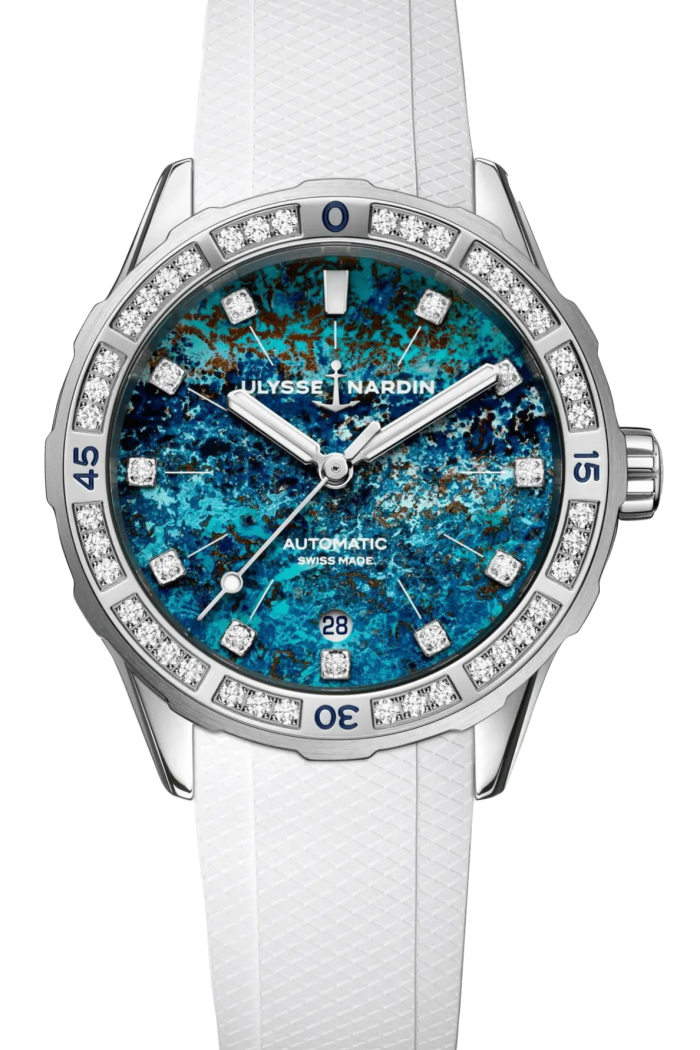
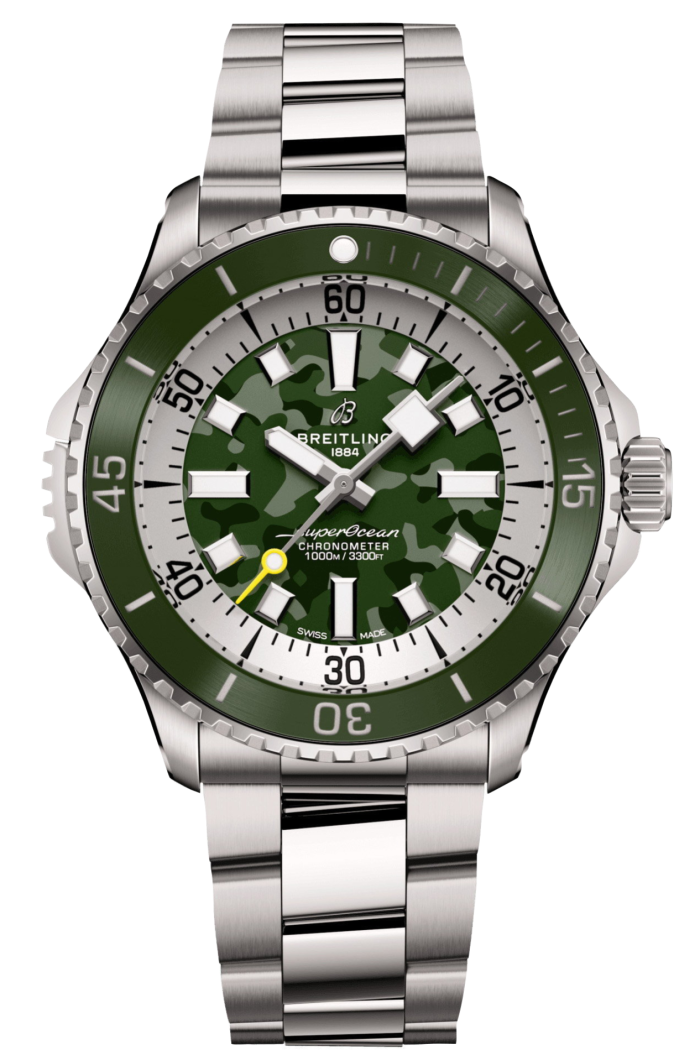
The fashion for iced-up divers has even made its mark at Patek Philippe, with its flagship diver receiving an iridescent facelift. Its Aquanaut Luce Haute Joaillerie has a dial, bezel and lugs set entirely with baguette and brilliant cut white diamonds and blue sapphires.
Omega has also dressed up its Seamaster — one of the most perennially popular diver models since its launch in 1948 — with an 18-carat yellow-gold dial worked with a wave guilloche pattern, a diamond-set bezel and hands, and tsavorite hour markers. “If you consider all Omega watches sold, the share percentage of our dive models has certainly increased, most noticeably since around 2020,” says Raynald Aeschlimann, Omega’s chief executive. “In fact, dive watches now account for around a third of our sales.”
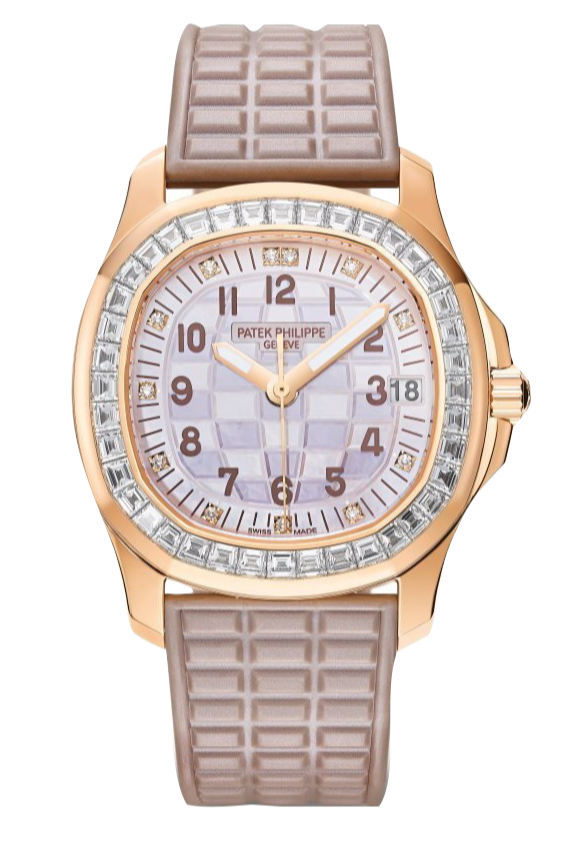
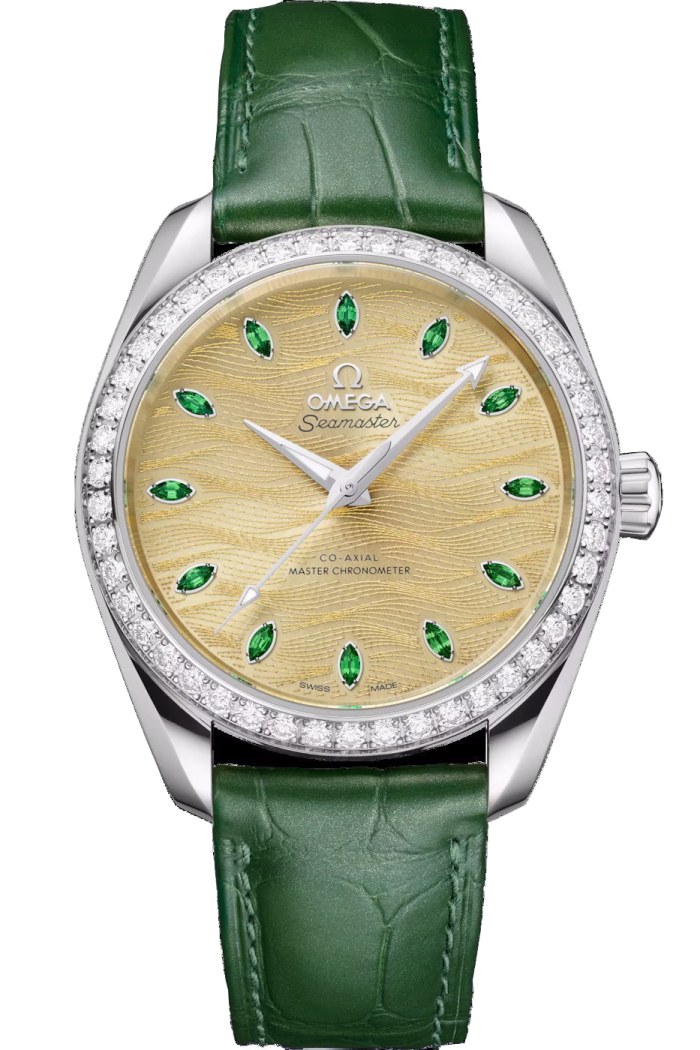
At the other end of the scale, the prize for the most risk-free investment goes to Swatch’s collaboration with Blancpain, which came up with a plastic iteration of the iconic Fifty Fathoms dive watch — at a fraction of the price of the original.
One of the most buoyant refashionings of a dive watch design is, arguably, Nivada Grenchen’s Jellyfish Depthmaster. This blocky steel case ticker incorporates details from 1980s arcade classic Pac-Man, including faithful facsimile numerals and pixelated jellyfish hands.
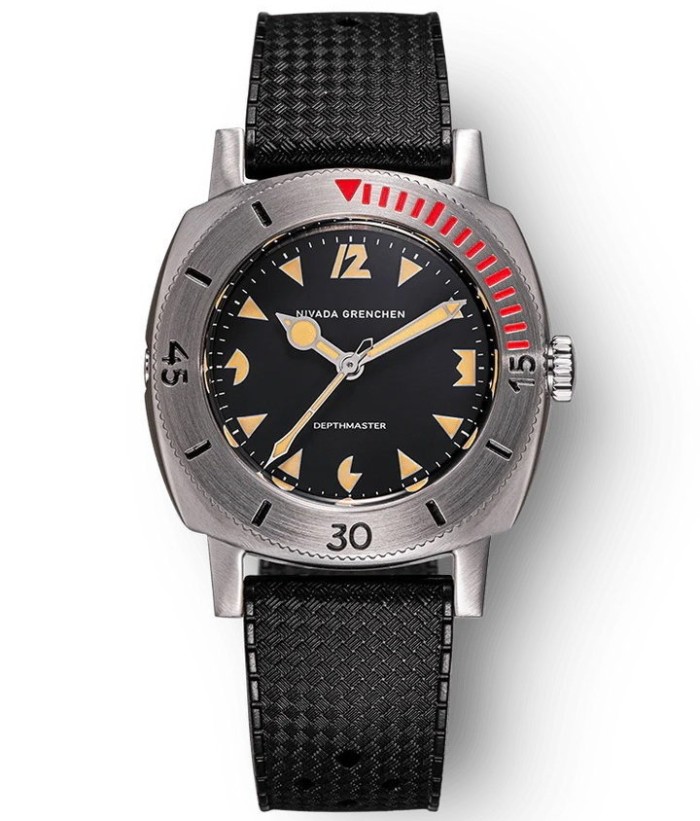
And reaching alchemic depths is the AquaSaphir from ArtyA, a niche maison that pushes the boundaries of material experimentation, crafting timepieces with solid Burmese jadeite cases and dials made from genuine butterfly wings. Its AquaSaphir comes in an array of outfits, but this model with its sapphire glass case and gradient blue dial is a highly engineered ode to the deep blue.
While fresh designs and revamped classics might make this feel like an entirely novel trend, there are also models that have been hibernating in the archives of brands that normally steer clear of dive watches. Zenith’s Defy Revival, an exacting reissue of a bold 1969 diver, is a case in point.
But, for those craving complex cogs and springs, Blancpain’s Fifty Fathoms Bathyscaphe Quantième Complet Phases de Lune is a rethink of a 1953 design incorporating a complete calendar — clocking the day, date and month — as well as a moonphase indicator.

